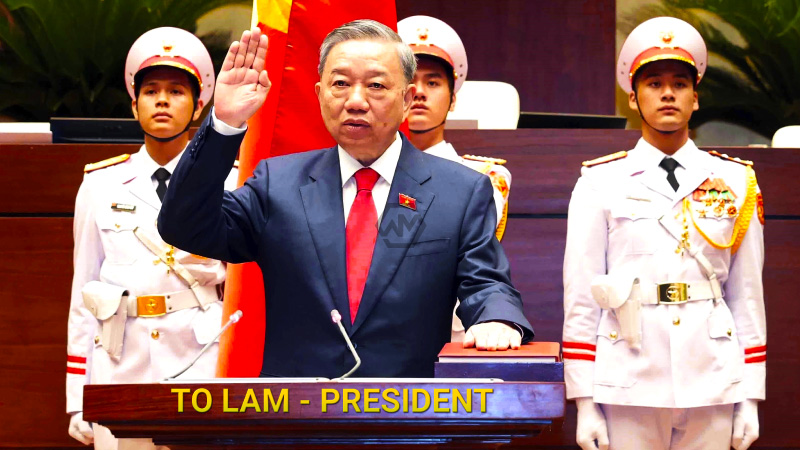- Vietnam‘s top security official To Lam has been affirmed as the country’s new president.
- Mr Lam spent over forty years in Vietnam’s service of public security before becoming the pastor in 2016.
- Until his renunciation, Mr Shade was likewise generally seen as an expected replacement for Mr Trong.
He regulated police and knowledge tasks over a period when privileged bunches say fundamental freedoms have been deliberately smothered and its mystery administration was blamed for disregarding global regulation.
Vietnam’s Public affirmed Mr Lam’s together after his ancestor surrendered amid a continuous enemy of defilement crusade that has shaken the country’s political foundation and business elites and has brought about various high-level changes in government.
To Lam is the President of Vietnam
Vietnam’s administration is to a great extent stylized, however, his new job as head of state places the 66-year-old in an “extremely impressive position” to turn into the following Socialist Faction general secretary, the main political situation in the nation, said Nguyen Khac Giang, an expert at Singapore’s ISEAS-Yusof Ishak Establishment.
Socialist Coalition general secretary Nguyen Phu Trong was chosen for a third term in 2021, however at age 80, he may not look for one more term after 2026.
Mr Trong is an ideologue who sees defilement as the gravest danger confronting the party. As Vietnam’s top security official, Mr Lam has driven Mr Trong’s general enemy to join the crusade.
His ascent occurred while Vietnam’s politburo lost six of its 18 individuals amid the extending hostility to join the crusade, including two previous presidents and Vietnam’s parliamentary head.
Top state leader Pham Minh Chinh is viewed as the other significant competitor to succeed Mr Trong potentially, Mr Giang said.
The ongoing bad habit speaker of Vietnam’s parliament was affirmed on Monday as the Public Get-together speaker after his ancestor, Vuong Dinh Tint, surrendered amid the counter crusade.
This extraordinary flimsiness in Vietnam’s political framework has scared financial backers as the nation attempts to situate itself as an option for organizations hoping to move their stock chains from China.
A surge of unfamiliar ventures, particularly in assembling cutting-edge items like cell phones and PCs, raised assumptions it could join the “Four Asian Tigers” — Hong Kong, Singapore, South Korea, and Taiwan – whose economies went through fast industrialization and posted high development rates.



